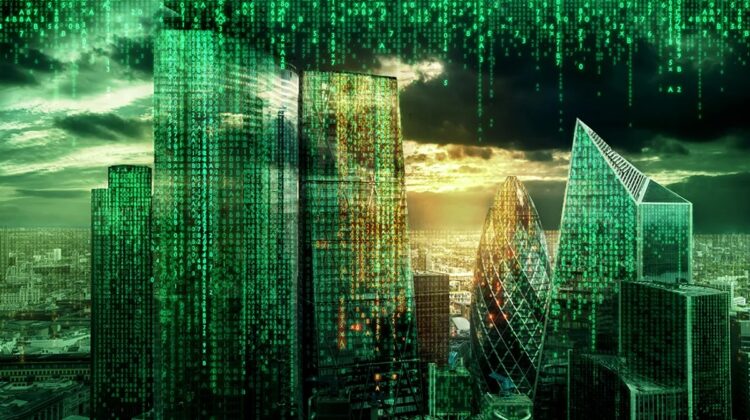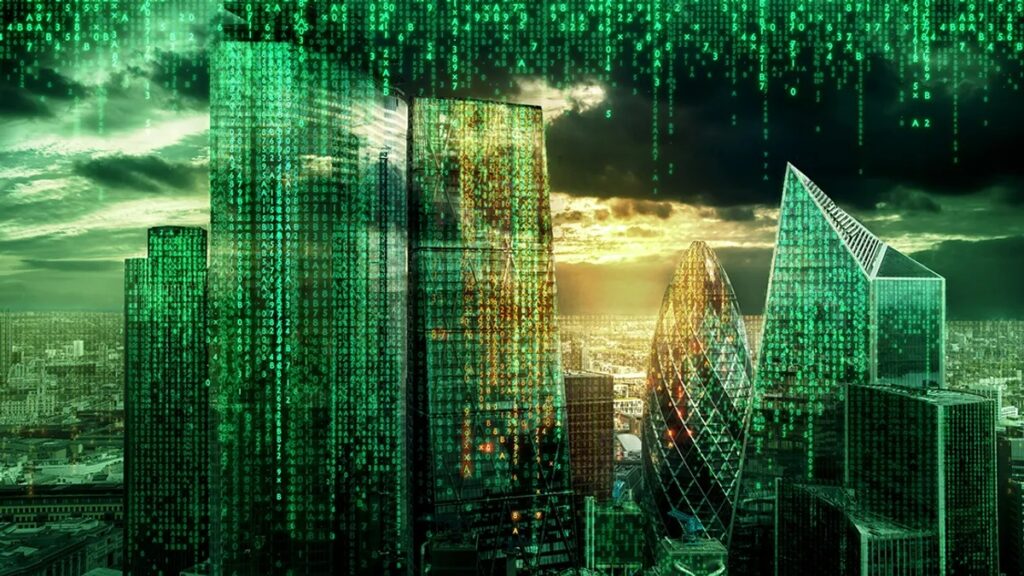
A controversial team of physicists is preparing to conduct a series of quantum tests aimed at determining if our reality is merely a simulation.
While we generally accept that we live in a real universe, it’s undeniably a peculiar one. In the realm of quantum mechanics, phenomena often defy intuition. One of the most baffling examples is the double slit experiment, which has puzzled scientists for nearly a century and will be central to the team’s investigation into the nature of our reality.
In the double slit experiment, shining light through two slits creates an interference pattern on a screen, indicating that light behaves as a wave. Even when photons (or electrons, or even larger molecules) are fired one at a time, an interference pattern still emerges, suggesting that each photon somehow goes through both slits as a wave before collapsing into a particle.

Image credit: IR Stone/Shutterstock.com
Things take an even stranger turn when detectors are introduced to determine which slit the photon passed through. In this case, the interference pattern disappears, leading to various interpretations within quantum mechanics. The many-worlds interpretation, for example, posits that every measurement creates a split into multiple universes, each representing a different outcome. Alternatively, pilot wave theory suggests that particles travel on waves, guiding their path.
Despite the bewildering nature of quantum mechanics, it remains our best model for understanding the subatomic world. Some scientists argue that observation is crucial for the collapse of the wave function, while others believe there is a physical explanation yet to be uncovered. However, a particularly provocative idea is that we might be living in a simulation, with reality only being rendered when observed.
In 2017, a group of physicists introduced several methods for testing the simulation hypothesis in their paper “On Testing the Simulation Theory.” Their hypothesis is based on the notion that a simulated universe would have limited computational resources, only rendering parts of the universe that are being observed by a “player,” much like a video game renders only visible areas to save processing power.
According to the team, the key to testing whether we are in a simulation is to determine when information becomes available to observers. They suggest that if reality is rendered only at the moment of observation, it would manifest as noticeable inconsistencies or anomalies in our experience.
“To save computing work, the system only calculates reality when information becomes available for observation by a player,” the authors wrote in their paper, which is available on the pre-print server arXiv. “To avoid detection, it maintains a consistent world but occasionally introduces conflicts that lead to VR indicators and discontinuities, such as wave/particle duality.”
The team proposes experiments that might reveal whether reality is rendered only upon observation. One of their simpler experiments involves collecting which-way data and screen data on separate USB drives. The which-way data would be destroyed based on a random process, and the results would be analyzed to see if an interference pattern emerges in the screen data when the corresponding which-way data is destroyed. If wave patterns appear only when the which-way data is deleted, it could suggest that reality is rendered at the point of observation.
Other, more complex experiments are outlined in their paper. While the concept of testing a simulation is intriguing, the team has also raised funds via Kickstarter to conduct these experiments. It is unclear which specific experiments will proceed, but the research is being carried out at California State Polytechnic University (CalPoly), Pomona, with a Canadian university involved that has chosen to remain anonymous.
Thomas Campbell, a former applied physics scientist for NASA and the Department of Defense, stated in a press release, “The idea here is that consciousness is not a product of the simulation — it is fundamental to reality. If all five experiments work as expected, this will challenge the conventional understanding of reality and uncover profound connections between consciousness and the cosmos.”
While the implications of such tests are profound, demonstrating compelling and replicable results would be necessary to challenge established notions of reality. As with other quantum experiments, results may be subject to interpretation and debate. Quantum mechanics remains a field ripe with strange and often paradoxical results, and the simulation hypothesis is just one of many intriguing ideas emerging from this complex domain.

Leave a Reply